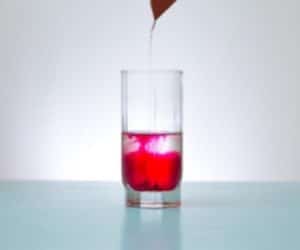The Dangers of Powdered Alcohol

There is a new product on the market called Flavored Alcohol and it has been approved for sale by the U.S. Alcohol and Tobacco Tax and Trade Bureau. Parents, legislators and addiction specialists are all concerned about the potential harm that the product may cause. They are worried about health risks, and the potential for abuse, which may lead to dependence and addiction. The powdered alcohol, called Palcohol, is freeze-dried, flavored and sold in packets. It is very easy to carry or conceal powdered alcohol, especially in places where alcoholic beverages are banned.
Each packet of Palcohol is equivalent to one shot of alcohol and it comes in five versions, which are rum, vodka, Lemon Drop, Cosmopolitan and Powderita, which is the equivalent of a Margarita. The cocktails contain Sucralose and natural flavorings. By adding six ounces of liquid to Palcohol, it becomes equal to one standard mixed drink. If less liquid is added, the alcohol is more concentrated and may lead to abuse, dependence and addiction. Palcohol is subject to State regulations even though it is approved by the Federal Government.
The Dangers of Powdered Alcohol Abuse
The dangers of powdered alcohol are varied. Some may be at risk of over-consumption due to the product’s packaging. Others may abuse Palcohol by snorting it, which would lead to an immediate high. Over time, this would become painful and burn the mucous membranes. It may also be mixed with other addictive substances such as marijuana, which is a concern because it is an antiemetic. An antiemetic inhibits the body’s ability to fight alcohol poisoning. Others have also figured out how to inhale the powder through a nebulizer or other equipment which turn liquids into a mist. Palcohol is still too new to know the many problems it may cause, and some people are under the illusion that if something is legal it is also safe.
States Banning the Substance
There are some states in the U.S. that have already taken steps to ban Palcohol. These include New York, South Carolina, Colorado, Louisiana, Massachusetts, Rhode Island and Vermont. The fear that adolescents will be attracted to the flavorings in Palcohol lends concern for its abuse, as does the fact that it would be easy to slip it into someone’s drink. Small children also run the risk of injury if they consume Palcohol. It will burn their mouth and form a gummy substance as it mixes with saliva, and they would have already ingested about one shot of alcohol. There are people that will always abuse alcohol, and although there is no proof that Palcohol is any more dangerous than liquid alcohol the concern is still great.
The Powdered Alcohol Concept
Mark Philips is the inventor of Palcohol. His motivation for creating the product was to be able to avoid carrying cumbersome bottles while hiking, backpacking, kayaking etc. General Foods Corporation originally obtained the patent for the process of producing powdered alcohol in 1972. The sale of Palcohol may prove to be a huge success with the public, but consumers are being warned to keep this product away from children under the legal drinking age of twenty-one.
On the Palcohol website, Mark Philips refutes all the negative concerns regarding Palcohol in a video. He introduces the viewer to the product and shows how it is used. Palcohol comes in a four inch by six-inch foil packet with a two-inch gusset on the bottom. This design creates a drinking glass out of the packet. After the six ounces of water are added to the packet it is sealed with a zip lock and shaken to mix the ingredients. The Palcohol is ready to drink out of the container or a straw can be used. The packet is about four times larger than a small bottle (one shot) of alcohol. It is much bigger and more conspicuous than a small bottle, refuting the claims that Palcohol is easier to hide. A small bottle of liquid alcohol mixes easily in a glass of water, Palcohol does not mix in as fast even with constant stirring. This demonstration shows that Palcohol is not the best choice to use for spiking someone’s drink.
If you or a loved one needs help with abuse and/or treatment, please call the WhiteSands Treatment at (877) 855-3470. Our addiction specialists can assess your recovery needs and help you get the addiction treatment that provides the best chance for your long-term recovery.
